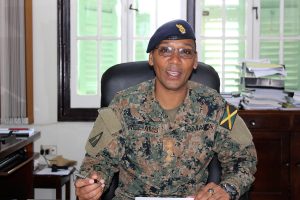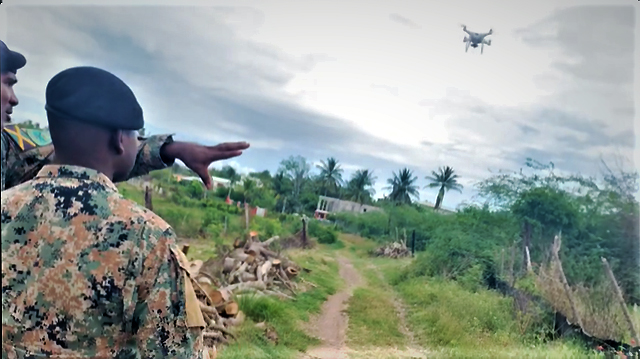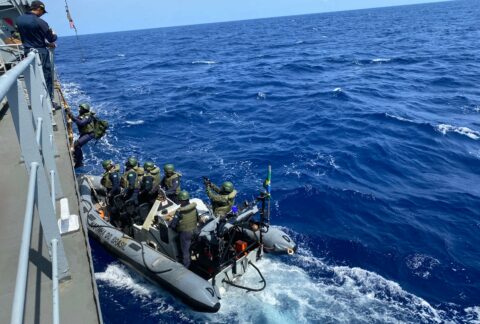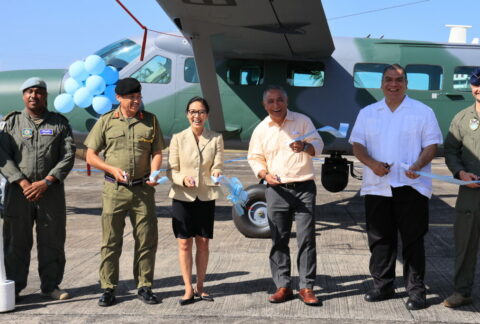According to Lieutenant General Rocky Ricardo Meade, the most significant issues affecting Jamaica are organized criminal gangs, illicit trafficking, and associated violence.
“The organized criminal gangs defending their turf will fight each other for influence […], illicit trafficking, and for the resources and funding from that,” said the Jamaica Defence Force (JDF) chief of Defence Staff in a recent interview with Diálogo. For Lt. Gen. Meade, the long-standing partnership between the island-country and the United States is paramount in the fight against these threats. “We are friends and neighbors, we share the same ideology, values, and we have the same threats — natural and man-made threats: the organized criminals involved in trafficking and anything that they can make a profit from, and there are natural phenomenon that affect us equally. So, we work together so that we can better tackle those threats.”
One important piece to make this partnership even stronger is the exchange of logistics support, supplies, and services between the United States and Jamaica. To help simplify this process — not only with Jamaica, but with several partner nations around the world — and to provide the basic framework for cooperation in military logistics matters, the United States enacted the Acquisition and Cross-Servicing Agreement (ACSA) in the early 1980s. This international agreement does not commit a country to any military action but provides for the exchange of logistics support, supplies, and services on a reimbursable basis.

USNS Comfort in Jamaica
Even though the United States has an ACSA with Jamaica since 2015, it was only after the October 2019 visit of the hospital ship USNS Comfort that both nations used the agreement for the first time. The Comfort was anchored off the coast of Kingston for a six-day medical mission, and its medical crew worked closely with health and government partners in Jamaica to provide care on the ship and at land-based medical sites, helping to relieve pressure on national medical systems.
This had an associated cost for the Jamaican government, which due to a prior agreement, would be reimbursed by U.S. Southern Command (SOUTHCOM). “Jamaica needed some cameras and drones to help fight crime, especially narcotrafficking. The amount we were going to send back to the country for the goods and services they [had] already provided us during the Comfort visit was about the same [as that] of some drones and cameras SOUTHCOM had in excess, so both the U.S. and Jamaica agreed that this would be a win-win situation, and we transferred the equipment to them,” said U.S. Army Major Baron Mason, U.S. Embassy Military Liaison in Jamaica.
The beneficiary of the equipment transfer was the JDF, which put the cameras and drones to use almost immediately. “The drones transferred from SOUTHCOM to the JDF have already proven their immense value to us. We have used them for tactical support to our troops on operations as well as for mid-level, aerial surveillance of target locations. Even now, as we grapple with this coronavirus threat here in Jamaica, the drones have been deployed to quarantined areas to help us monitor and enforce the quarantine boundary lines. They have truly been a force multiplier as we take on our ever-expanding duties and roles,” said Colonel Mahatma Williams who, among other duties, is responsible for public relations and communications for the JDF.
According to the U.S. Department of Defense, as of February 2020, the United States has ACSAs with 120 countries.









